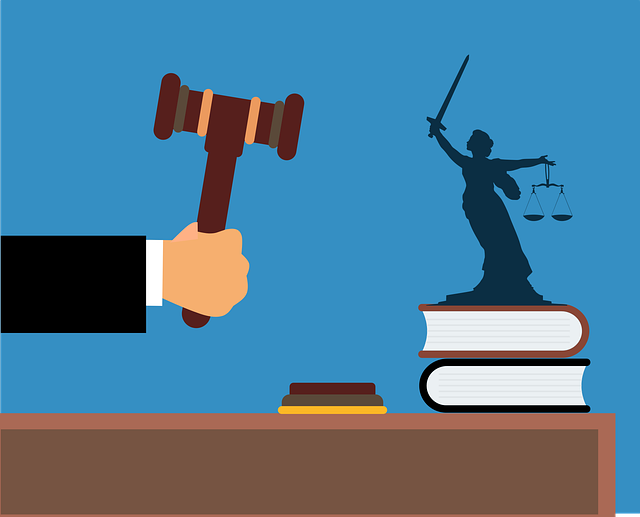Understanding different litigation types is vital for navigating complex legal disputes. In personal injury claims, calculating damages involves assessing economic and non-economic losses, including medical expenses, lost wages, and pain and suffering. Punitive damages are applied to hold negligent or malicious defendants accountable. Alternative Dispute Resolution (ADR) methods like mediation and arbitration offer efficient alternatives to court for calculating damages in personal injury cases.
In the complex landscape of litigation, understanding different types is key to navigating legal complexities. This article explores a diverse array of litigation categories, with a special focus on personal injury claims. We delve into assessing liability, calculating damages—both economic and non-economic—and examining when punitive damages are applicable. Additionally, we introduce alternative dispute resolution methods, providing a comprehensive guide for anyone seeking to navigate the legal system effectively, particularly in personal injury cases involving Calculating Damages.
- Understanding Different Types of Litigation
- Personal Injury Claims: Assessing Liability
- Calculating Economic and Non-Economic Damages
- Punitive Damages: When They're Applicable
- Alternative Dispute Resolution Methods
Understanding Different Types of Litigation
In the realm of legal disputes, understanding different types of litigation is key to navigating the complexities of any given case. Personal injury cases, for instance, involve calculating damages to compensate victims for their losses. This process considers factors such as medical expenses, lost wages, and pain and suffering, ensuring a fair and just outcome. Different litigation types have distinct approaches and requirements, making knowledge of these variations essential for both plaintiffs and defendants.
Each type of litigation serves unique purposes, from contract disputes to intellectual property cases, each with its own set of rules and procedures. This diversity allows for tailored solutions to complex problems within respective business environments. Avoiding indictment in any legal matter is a strategic goal, highlighting the importance of thorough preparation and understanding the respective laws that govern these diverse litigation scenarios. Moreover, philanthropic and political communities often find themselves involved in various types of litigation, requiring adept legal strategies to protect their interests while upholding justice.
Personal Injury Claims: Assessing Liability
Personal Injury claims, a significant aspect of litigation types, often revolve around assessing liability and calculating damages. When an individual suffers harm due to another party’s negligence or intentional actions, understanding legal responsibility and quantifying compensation becomes crucial. This process involves meticulously examining all stages of the investigative and enforcement process to determine fault and subsequent reparations.
Assessing liability requires a comprehensive review of evidence, witness testimonies, and expert opinions. The goal is to establish beyond a reasonable doubt that the defendant’s actions or inactions directly caused the plaintiff’s injuries. Once established, calculating damages becomes a complex task, considering both economic and non-economic losses. This includes medical expenses, lost wages, pain and suffering, and emotional distress, among other factors. Winning challenging defense verdicts in personal injury cases necessitates a meticulous approach, where each element of damage is carefully scrutinized, ensuring fairness and accuracy in the final compensation.
Calculating Economic and Non-Economic Damages
In personal injury cases, calculating damages is a meticulous process that encompasses both economic and non-economic aspects. Economic damages refer to quantifiable losses such as medical bills, lost wages, and property damage. These are typically easier to assess, as they often have concrete values associated with them. On the other hand, non-economic damages encompass elements like pain and suffering, emotional distress, and loss of quality of life, which can be more subjective and challenging to measure.
Judges and juries play a crucial role in determining these non-economic damages by considering the facts of each case. This may involve evaluating the extent of physical injuries, the lasting impact on daily life, and the psychological effects experienced by the victim. In complex cases, expert witnesses might be called upon to provide insights into these non-economic losses, ensuring that the respective business interests, including those of corporate and individual clients, are fairly represented in the calculation of damages within the philanthropic and political communities.
Punitive Damages: When They're Applicable
Punitive damages are a type of compensation awarded in civil cases, primarily focused on personal injury or tort claims. Unlike compensatory damages that aim to restore an individual’s financial position to what it was before the injury, punitive damages serve a different purpose. They are meant to punish the defendant for their reckless or malicious behavior and deter them from similar conduct in the future. In the context of calculating damages in personal injury cases, punitive damages come into play when the plaintiff can prove that the defendant’s actions were willful, wanton, or showed a complete disregard for societal norms and safety standards.
In white collar and economic crimes scenarios, where individuals or entities engage in fraud, embezzlement, or other financial misconduct, courts may award punitive damages to send a strong message. This is especially relevant in cases involving white collar defense strategies, as it can significantly impact the defendant’s financial resources. However, the application of punitive damages is not limited to such specialized criminal defense areas; they can be sought in various personal injury claims, ensuring that justice is served and wrongdoers are held accountable for their actions.
Alternative Dispute Resolution Methods
In many legal disputes, turning to court isn’t always the most efficient or cost-effective route. Alternative Dispute Resolution (ADR) methods offer a range of options for resolving conflicts outside of traditional litigation. These processes can be particularly beneficial in personal injury cases, where calculating damages accurately is crucial. ADR techniques such as mediation and arbitration allow parties to negotiate settlements with the help of a neutral third party, potentially avoiding lengthy and costly trials.
While these methods might not suit every scenario, including high-stakes cases like white-collar and economic crimes, they are valuable tools for many legal disputes. By encouraging communication and mutual understanding, ADR can lead to faster resolutions and more mutually agreeable outcomes, especially when calculating damages in personal injury cases with complex financial implications.
Understanding different litigation types is key to navigating legal disputes effectively. From personal injury claims that involve assessing liability and calculating damages, to alternative dispute resolution methods, each approach offers unique benefits. When it comes to calculating damages in personal injury cases, especially non-economic losses, a nuanced understanding is essential for just compensation. Moreover, knowing when punitive damages are applicable adds another layer of complexity—but also protection—for victims. By exploring these various litigation types and strategies, individuals can better protect their rights and seek the resolution they deserve.






